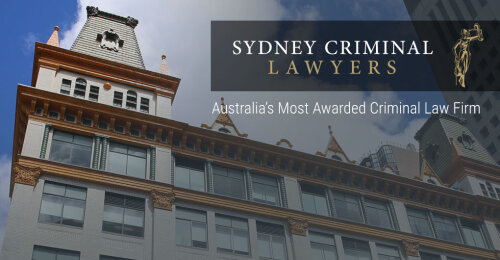Best General Litigation Lawyers in Sydney
Share your needs with us, get contacted by law firms.
Free. Takes 2 min.
List of the best lawyers in Sydney, Australia
About Litigation Law in Sydney, Australia
Litigation law in Sydney, Australia, involves the legal proceedings that begin when a case is brought to a court. It encompasses a range of disputes, including commercial issues, personal injury claims, contract disagreements, and property disputes, among others. The litigation process in Sydney is governed by both federal and state laws, and it often involves multiple steps, including pleadings, discovery, trial, and potentially an appeal. The New South Wales (NSW) court system, where Sydney is located, is divided into several levels, including the Local Court, District Court, Supreme Court, and specialized tribunals, each handling different types of disputes based on their complexity and the amounts involved.
Why You May Need a Lawyer
There are several situations where individuals and businesses may require legal assistance in litigation. If you are involved in a contractual dispute, accused of breaching a contract, facing business disagreements, personal injury claims, or need to enforce your rights under an agreement, consulting a lawyer can be essential. A litigation lawyer can help you understand your legal standing, formulate a strategy, and represent you effectively in court. They can also assist in out-of-court settlements and negotiations, which are often preferable to a lengthy litigation process.
Local Laws Overview
Sydney operates under the legal jurisdiction of New South Wales, which means local laws in litigation are influenced by both state legislation and federal laws. Important local laws include the Civil Procedure Act 2005, which outlines the practices and procedures for civil litigation; the Limitation Act 1969, which sets time limits for filing lawsuits; and various commercial laws governing business disputes. The NSW court system also emphasizes alternative dispute resolution methods, encouraging mediation and arbitration before moving to litigation. Understanding these laws and procedures is crucial for effectively navigating the litigation process in Sydney.
Frequently Asked Questions
What is the typical process of litigation in Sydney?
The litigation process typically involves several stages: initial pleadings, discovery, trial, and possibly an appeal. Each stage has specific rules and timelines that must be followed.
Can litigation fees be recovered if I win the case?
In NSW, the successful party may recover legal costs from the losing party, although the exact amount is at the discretion of the court. This does not cover all expenses, and some costs may still need to be borne by the winning party.
How long does a typical litigation case take in Sydney?
The duration of litigation can vary widely based on the complexity of the case, ranging from several months to several years. Factors such as court availability and the need for expert witnesses can impact timelines.
What is alternative dispute resolution (ADR), and is it encouraged?
ADR includes methods like mediation and arbitration to resolve disputes outside of court. It is highly encouraged in Sydney as it can be more time and cost-effective compared to traditional litigation.
Do I always need to go to court for litigation?
Not necessarily. Many disputes are resolved through negotiations or ADR methods without the need to appear in court.
Can a litigation lawyer represent me in all types of disputes?
Generally, yes. However, some lawyers may specialize in specific areas such as commercial litigation, personal injury, or property disputes. It's beneficial to choose a lawyer with expertise relevant to your case.
What should I look for in a litigation lawyer?
Key considerations include their experience, areas of specialization, past success in handling similar cases, and their ability to communicate effectively and provide sound advice.
What is the role of a barrister compared to a solicitor in litigation?
In Australia, solicitors typically handle the administrative and preparatory sides of a case, while barristers are courtroom specialists who represent clients in court, particularly in complex cases.
What if I'm unhappy with a court's decision in my case?
If you believe a mistake was made, you may have grounds to appeal the decision. Appeals are complex and require legal grounds, such as a legal error made during the trial process.
Are there any specific laws for business litigation in Sydney?
Yes, several laws cover business litigation, including the Corporations Act 2001 and the Australian Consumer Law. Each has specific provisions related to business practices and disputes.
Additional Resources
For those seeking further guidance, several resources and organizations can prove invaluable. These include the Law Society of New South Wales, which provides a directory of practicing lawyers, and Legal Aid NSW, offering assistance for those who qualify. The NSW Department of Communities and Justice website provides extensive information on courts and legal processes. Additionally, the Australian Competition and Consumer Commission (ACCC) can offer insights into disputes related to consumer law.
Next Steps
If you believe you require legal assistance with a litigation matter in Sydney, your first step should be to consult with a qualified litigation lawyer. Gather all relevant documents, timeline events, and any communication related to your dispute before the meeting. Be prepared to discuss your case in detail and to ask questions related to your lawyer’s experience and proposed strategy. Understanding what you want to achieve legally will help your lawyer provide targeted advice. If cost is a concern, ask about possible fee arrangements and whether the firm offers any initial free consultations. Proceeding with proper legal representation can significantly enhance your case's chances of a favorable outcome.
Lawzana helps you find the best lawyers and law firms in Sydney through a curated and pre-screened list of qualified legal professionals. Our platform offers rankings and detailed profiles of attorneys and law firms, allowing you to compare based on practice areas, including General Litigation, experience, and client feedback.
Each profile includes a description of the firm's areas of practice, client reviews, team members and partners, year of establishment, spoken languages, office locations, contact information, social media presence, and any published articles or resources. Most firms on our platform speak English and are experienced in both local and international legal matters.
Get a quote from top-rated law firms in Sydney, Australia — quickly, securely, and without unnecessary hassle.
Disclaimer:
The information provided on this page is for general informational purposes only and does not constitute legal advice. While we strive to ensure the accuracy and relevance of the content, legal information may change over time, and interpretations of the law can vary. You should always consult with a qualified legal professional for advice specific to your situation.
We disclaim all liability for actions taken or not taken based on the content of this page. If you believe any information is incorrect or outdated, please contact us, and we will review and update it where appropriate.
















